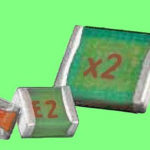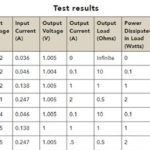 AVX Corporation launched an updated version of its user-friendly SpiCAT online simulation tool, which enables the quick, easy, and accurate parametric characterization of an extensive range of multilayer ceramic, tantalum, polymer, and niobium oxide surface-mount capacitors, as well as multilayer varistors.
AVX Corporation launched an updated version of its user-friendly SpiCAT online simulation tool, which enables the quick, easy, and accurate parametric characterization of an extensive range of multilayer ceramic, tantalum, polymer, and niobium oxide surface-mount capacitors, as well as multilayer varistors.
The interactive online tool groups various product series by common application features to simplify, ease, and hasten the capacitor selection process and allows design engineers to review the electrical characteristics for individual part numbers with respect to temperature and frequency to ensure optimal application-specific selections. The latest SpiCAT update features four new high-reliability, X7R-dielectric multilayer ceramic capacitor (MLCC) product series engineered for use in demanding automotive, military, and space applications.
MLCC products new to the SpiCAT simulation software include AVX’s FLEXISAFE Automotive X7R MLCCs, ESCC-Approved X7R BME Space MLCCs, NASA-Approved X7R BME Space MLCCs, and military- and space-level MIL-PRF-32535 X7R BME MLCCs.
FLEXISAFE MLCCs are engineered for safety-critical applications, including those in the automotive industry, and are rated for up to 100V and capacitance values extending from 1nF to 470nF. They employ AVX’s award-winning FLEXITERM™ layer, which protects ceramic components from mechanical stress damage resulting from PCB assembly or harsh-environment operation, as well as a cascade electrode design that protects them from low insulation resistance failures resulting from thermal stress, repetitive ESD strikes, and placement damage.
AVX’s surface-mount, base-metal-electrode (BME) MLCCs utilize leading-edge technology in MLCC construction and processing to deliver high-reliability performance with superior capacitance voltage capabilities compared to conventional precious-metal-electrode (PME) technologies. Qualified to rigorous industry standards including ESCC 3009, ESCC 3009/034, ESCC 3009/041, NASA S311-P838, and MIL-PRF-32535, these high-reliability X7R MLCCs support critical, board-level size and weight reductions in size-, weight-, and power-sensitive (SWaP-sensitive) applications including satellites and launch vehicles.




